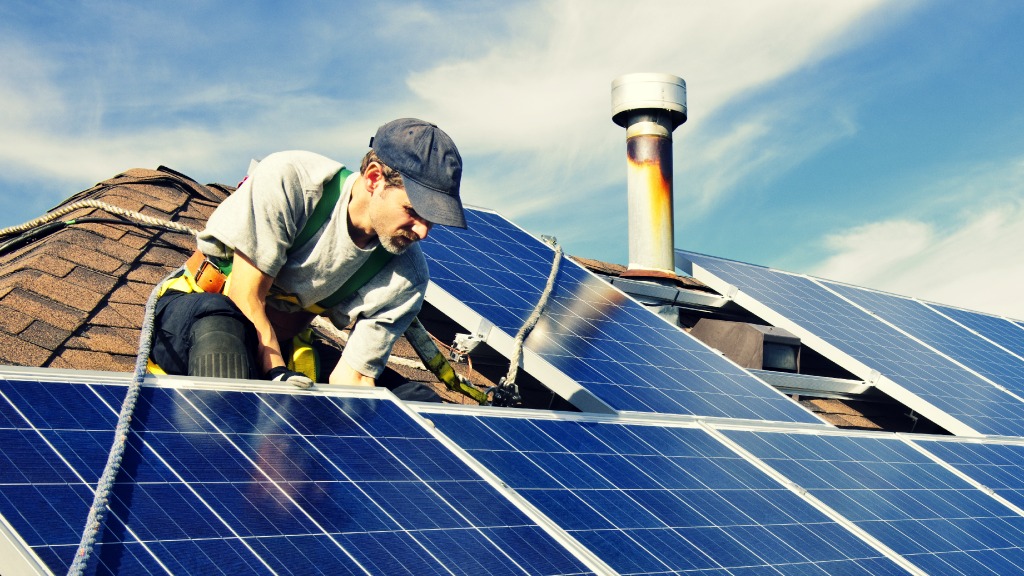At the beginning of this year, I made a short list of predictions about what the future held for environmental activism in 2014. I was right about a few of them — divestment has gone mainstream, environmental organizing has shifted from big infrastructure like Keystone to regional infrastructure like power plants and coal terminals. But there’s one huge thing that I missed: solar.
So far, this has been a precedent-setting year for how solar power is going to play out in this country. The technological breakthroughs in storage and affordablity began a few years ago — but this year is all about figuring out how to fit this new technology into the hairball of regulations that surround American utilities.
Examples have ranged from the laid-back and sensible (the state of Washington developing streamlined statewide rules for solar, which lowered the cost of installation by up to $2,500 in some communities) to the litigious (a long-standing court case in Iowa was resolved in favor of solar power, possibly setting a precedent for the rest of the midwest).
But all is not victory in solar-land. This Saturday, the Los Angeles Times told the tale of the potential sunbaked goldmine where solar companies fear to tread: the South. Specifically, sunny Florida.
Writes the Times:
The business models that have made solar systems financially viable for millions of homeowners in California, New England and elsewhere around the country are largely illegal in Florida, Virginia, South Carolina and some other Southern states. Companies that pioneered the industry, such as SolarCity Corp. and Sunrun Inc., do not even attempt to do business there.
“We get all kinds of inquiries every day” from the South, said Will Craven, spokesman for SolarCity. “People there want to be our customers.”
Florida, in particular, is known as the “sleeping giant” of his industry, Craven said. “It has a ton of sunshine, a ton of rooftops,” he said.
There are many ways that solar is blocked in the South: some states ban or restrict leasing arrangements or power purchase agreements (PPAs), which are popular among people who don’t have several thousand dollars lying around to install their own panels. South Carolina Energy & Gas blocked a PPA that would have installed 80 solar panels on local schools and churches. Other states add taxes or fees for the use of solar arrays.
Why so many rules? The prevalence of coal is one theory — while it’s not as coal-infatuated as Texas, the South does burn a lot of the stuff. (And Texas is another state where solar has struggled with a lot of pushback from utilties.) But rules like this have been cropping up all over the U.S. — they’re just more poignant when they happen in sunny climes.
It’s been interesting to watch this play out in light of the Wild West atmosphere that so often surrounds technological breakthroughs. I’ve been reading American Odyssey, Robert Conot’s history of Detroit, and I’m continually surprised at how easy cars had it in the first few decades of their creation. They killed people left and right, but it was was years before “drivers’ licenses,” “insurance,” or “parking tickets” came on the scene. Airbnb, Uber, and Lyft were able to muscle into long-established monopolies and get comfortable before facing any major pushback, and the first major online retailer, Amazon, was able to go nearly two decades without charging the sales taxes that brick and mortar stores had to.
It’s not that this kind of preferential treatment for new technology is fair. And to be sure, solar has gotten some breaks over the years as well, particularly at the federal level. Solar may have widespread appeal to everyone from hippies to libertarians. Yet it’s still having to fight to claw its way into a surprising number of markets, while other industries get to zoom ahead.



